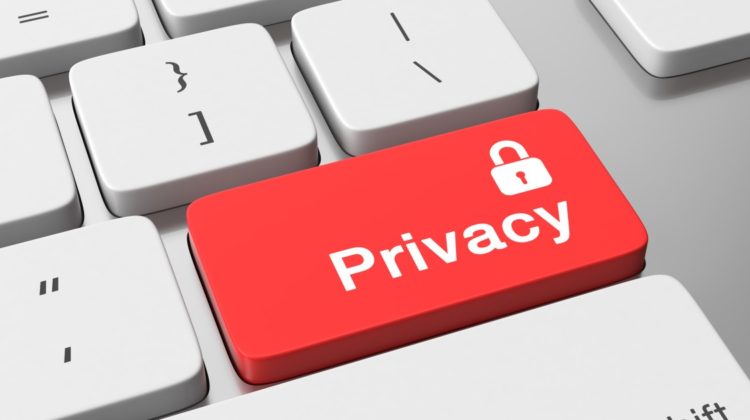

What can consumers expect for the next 12 months? A prominent market research firm came out this week with a report titled “Top 10 Global Consumer Trends 2021.”
To get my hands on it, however, I had to submit my name, email address and job details.
And just like that, my question was answered: More of the same.
OK, I exaggerate. There are some interesting predictions in the report from London-based Euromonitor International, which describes itself as “the world’s leading provider for global business intelligence, market analysis and consumer insights.”
But the ploy of making people submit personal information to view an otherwise free report highlights what to me is the greatest ongoing challenge to consumers — the steady erosion of our privacy in the age of digital media and commerce.
The fact that vanishing privacy isn’t one of Euromonitor’s top 10 consumer trends for the year also suggests that, to many in the business world, the matter is settled. Corporations have won. We’ve lost.
“Every company is a data company now, and your data is valuable,” said Andrew Guthrie Ferguson, a law professor at American University who focuses on privacy issues.
He told me Euromonitor demanding people’s personal information in return for access to a report the company could have simply posted online highlights “the growth of data capitalism” — making one’s personal information the price of a good or service.
“It is an unequal power arrangement,” Ferguson said, “and even when consumers think they win, they lose.”
A Euromonitor spokeswoman said that even though the company’s research is “shared across a broad audience,” it’s still “proprietary,” which is why there’s a process for gaining access.
Um, yeah. Making people submit personal details and contact info clearly has nothing to do with expanding the firm’s mailing list.
In any case, most of the Euromonitor consumer-trend predictions won’t blow anyone’s mind. For example, consumers will increasingly demand that businesses focus at least in part on environmental issues and global sustainability.
They’ll seek a return to pre-pandemic levels of convenience, and will expect digital tools to help them manage the new normal of being stuck at home.
At the same time, consumers will rely on contactless services and “robust hygiene initiatives” on the part of companies to enhance public safety, and they’ll seek an improved sense of work-life balance.
Perhaps the single most intriguing forecast from Euromonitor’s researchers is a greater awareness among consumers that they have to pay attention to their “mental wellbeing.”
That’s a fancy way of saying many people are fighting off sadness and depression in these sad and depressing times, and that’s something the business world needs to be cognizant of.
“Existential threats like unemployment and lower budgets will urge consumers to seek products and services that help them withstand future crises and life-altering events,” the report says.
Does the fact that Euromonitor completely overlooks privacy mean that consumers have thrown in the towel when it comes to safeguarding personal information?
Every expert I spoke with said no.
“People keep saying the war is over, yet we keep coming up with new laws and protections,” said Peter Swire, associate director for policy at the Georgia Tech Institute for Information Security and Privacy.
He noted that in recent years, Californians have voted not once but twice to enact the country’s toughest privacy laws.
“If you ask voters if they want privacy protections,” Swire told me, “the answer seems to be yes.”
At the same time, he observed, “the United States is one of the last major countries without a national privacy law. Even China has a privacy law.”
Although the Trump administration seemed to be in a never-ending battle with the tech industry, neither the administration nor Congress championed the idea of a national law to safeguard people’s privacy, similar to rules enacted by the European Union in 2018.
“The pandemic has further eviscerated privacy, with Amazon, Google, Facebook and apps — including those used to teach kids — making out like digital bandits with our data,” said Jeffrey Chester, executive director of the Center for Digital Democracy.
All that lost ground represents an opportunity for the Biden administration and Democratic lawmakers.
“I would say that while consumers are understandably distracted and exhausted by other concerns, we are closer than we have been in a long time to national privacy legislation,” said Ryan Calo, a law professor at the University of Washington.
He predicted that Democrats’ razor-thin majority in the U.S. Senate means “we could well see a relatively strong national privacy law in 2021.”
But consumers shouldn’t expect such a prize to be handed to them. They’ll have to demand it.
All that stuff laid out by Euromonitor — the predictions of learning to live with COVID — these are reasonable if safe outlooks for the year ahead.
But one of the main, if largely unspoken, consumer trends of 2021 will be our continuing role as accomplices to the business world’s hijacking of the digital bits and pieces that define who we are as individuals and as a society.
“We have a decision to make in this country,” said Chester at the Center for Digital Democracy. “Do we want to live in a world of constant surveillance, digitally tethered to machines that have been programmed to track and influence our behavior?
“Or do we want lawmakers to enact rules that give Americans as much control as they can possibly have over their information?”
Put like that, it’s not such a tough call, is it?
